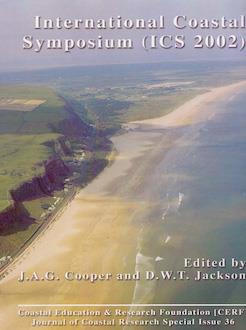There has been considerable research into the science of global climate change, however, there is presently little guidance for coastal authorities on accounting for the physical impacts of ongoing climate change in future land use planning and coastal defence policy.
For the central south coast of England, this paper briefly identifies ‘coastal climate change scenarios’for the next 80 years. A qualitative geomorphological appraisal of the potential impacts of these changes on coastal landforms and processes is presented, based upon generic ‘coastal behaviour systems’ that take account of the various sensitivities to change of the natural and managed coastline. Functions such as the sensitivity of coastal slopes to increasing effective rainfall, and barrier beaches to increased water levels, are considered. The likely future ‘behaviour’ of these systems, and in particular the potential for climate-induced changes, are identified.
The likely response of the coastal systems then provides an objective framework for evaluating hazard and risk. The levels of risk are strongly linked to the historic pattern of land use and development, which in many cases will not accommodate natural adjustment of coastal features. Without effective management, hazards will increase and coastal communities will be vulnerable and at risk under future climate change.
Recommendations are made regarding improving the risk management framework in the face of climate change impacts. Recommendations include issues such as compensation, the planning framework, coastal defence provision, nature conservation, data collection and education.
Although the results are specific to the study area, the methodology developed is transferable, offering a valuable model for other coastal managers.





